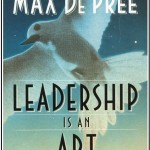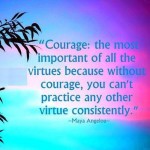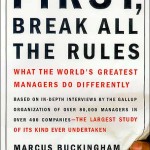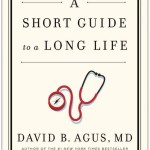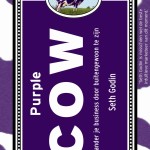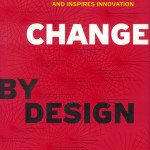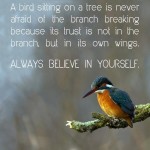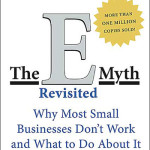“If we don’t change, we don’t grow. If we don’t grow, we aren’t really living.”
At last, this is your story. You’ll recognize yourself, your friends, and your loves. You’ll see how to use each life crisis as an opportunity for creative change — to grow to your full potential. Gail Sheehy’s brilliant road map of adult life shows the inevitable personality and sexual changes we go through in our 20s, 30s, 40s, and beyond. The Trying 20s — The safety of home left behind, we begin trying on life’s uniforms and possible partners in search of the perfect fit. The Catch 30s — illusions shaken, it’s time to make, break, or deepen life commitments. The Forlorn 40s — Dangerous years when the dreams of youth demand reassessment, men and women switch characteristics, sexual panic is common, but the greatest opportunity for self-discovery awaits. The Refreshed (or Resigned) 50s — Best of life for those who let go old roles and find a renewal of purpose. [From: Amazon.com]
As a reporter, Gail Sheehy was sent to do a story on the Northern Ireland conflict, and got caught up in the events of Bloody Sunday, the Catholic civil rights march in Derry in which 14 civilians, mostly young, were killed by British forces. The day might have remained simply a bad memory were it not for the fact that right in front of her she witnessed a boy have his face blown away by a bullet.
Returning to America, she took stock of her life. At 35, suddenly her lifestyle of journalistic travel did not seem enough. She felt she had been a ‘performer’ in life, not really participating in it, even though she had had a child and been married and divorced. Her ‘whole jerry built world’ as she describes it, threatened to come apart. She had seen herself as the optimistic, fearless, loving an ambitious ‘good’ girl – but now she seemed to be looking at the dark side. Half her life had been lived.
With this terrifying thought, she wondered: what do other people do when this happens to them? Some seemed to push themselves harder with their careers, others began playing dangerous sports, or giving bigger parties or taking younger people to bed. But she knew none of these things would fill the gaping hole in her psyche.
Passages was one of the publishing phenomenons of the 1970s. The subject of adult life crises was not an obviously ‘hot’ one, but with its groovy cover, serialization in popular magazines and the author’s talent for publicity, Passages became a bestseller. The writing style is what you would expect of a classy magazine feature writer, pulling the reader in from the first page.
It is easy to dismiss the book as dated pop psychology, but many readers of Passages are moved to exclaim ‘That’s me!’ as they recognize themselves in Sheehy’s descriptions of the stages of adult life, and has made many feel less alone as they negotiate life’s rapids.
Marker events and deeper crises
Sheehy realized that the terrible event she had witnessed was simply a trigger for deeper changes going on within her – some kind of mid-life crisis. The experience sparked her interest in other people’s turning points, and to her surprise she discovered that these ‘passages’ happened with predictable regularity at roughly the same ages. People tried to blame external events for how they were feeling, but as with herself often the outer events were not the answer. Dissatisfaction with lives that had seemed fulfilling only a couple of years before indicated there was something going on at another level.
There was a difference between ‘marker’ events like graduation, marriage, childbirth and getting a job – which all obviously have an impact, she noted – and developmental stages which change us from within. We tend to attribute how we are feeling to the marker event itself, when more often the event is simply a catalyst to move us forward into another stage of life. Though uncomfortable, often painful, these transition times should not be feared, as ultimately they mean growth. If we choose to embrace the change, we at least know we are growing. Sheehy was influenced by psychologist Erik Erikson’s idea that at certain turning points we can either move in the direction of personal growth, or stay with the security of what we know. Either way we will experience change; the choice is whether we have more control and awareness over the process, or allow it to happen to us.
The stages of childhood and adolescent development had been exhaustively identified, Sheehy noted, but not much attention had been given to adults. To write Passages, she immersed herself in the literature on life cycles, read a mountain of biographies, and began collecting life stories of people between the ages of 18 and 55. As most of the research related to men, she made sure the book included the stories of plenty of real women. She also explored life changes within the dynamic of a couple, and the stresses this can place on the relationship.
“Would that there were an award for people who come to understand the concept of enough. Good enough. Successful enough. Thin enough. Rich enough. Socially responsible enough. When you have self-respect, you have enough”
[ READ Passages: Predictable Crises of Adult Life (Part 2) – Gail Sheehy HERE
“The Twenties, The Thirties, The Forties” ]
About the Author:
Her fifth book, Passages, has been called “a road map of adult life”. Several of her books continue the theme of passages through life’s stages, including menopause and what she calls “Second Adulthood”, including Pathfinders, Spirit of Survival, and Menopause: The Silent Passage. Her latest book, Sex and the Seasoned Woman, reveals a hidden cultural phenomenon: a surge of vitality in women’s sex and love lives after age fifty. She has also authored a biography of Hillary Rodham Clinton titled Hillary’s Choice. Her novel Middletown, America is being adapted as a TV miniseries. [From: Goodreads.com]
If you like this story, CLICK HERE to join the tribe of success-minded people just like you. You will love our weekly quick summaries of top stories, talks, books, movies, music and more with handy downloadable guides, cheat sheets, cliffs notes and quote books.


